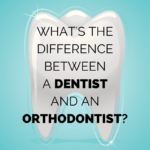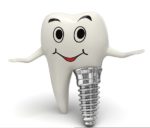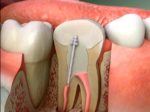Table of Contents
When on the road, medical emergencies can arise without premeditation. Therefore, most people prefer to have their holiday and receive medical treatment all at once. It saves money and time.
What is Dental Tourism?

Health tourism or medical tourism is a form of medical treatment, where patients travel to other countries or town for affordable and professional medical care.
Health tourism has become a standard practice with destinations such as Thailand, Romania and the Philippines being more popular than Kiwis.
In the United States, most people opt for dental treatments in Mexico. The price in the U.S is about $2,000 while the same procedure will cost approximately $500 in Mexico. In 2013, more than 500,000 Americans traveled abroad for dental services. Towns such as Los Algodones in Mexico, which is popularly known as “Molar City” due to foreigners who visit the city to access the low-cost dental services.
The rise in medical tourism can be attributed to patients seeking affordable yet professional dentistry services. Another reason for most patients going abroad for medical care can be to access medical care that cannot be found in their area of residence, or it is too expensive.
In places like Czech Republic, Costa Rica and other top health tourism spots, the dental health costs can save you up to 70% of what you would use while in your country.
Medical Tourism Tips
Before you decide to book a plane and head to Thailand, here are a few things to take into consideration before you get any treatment done.
1.Find a reputable dentist by checking the Academy of Dentistry International and Patients Beyond Borders or World Dental Foundation websites.
2.Connect your current dentist to the one you will visit. This way, they can consult each other and know what treatment to carry out.
3.Costs. Calculate the international fare, hotel rooms, and other follow-up procedures to see if you can be able to afford them. If not, save up or find alternative dental care near you that won’t cost an arm and a leg.
4.Post-appointment care. Add recovery time after your procedure. It is not recommended to combine traveling with intense procedures such as wisdom tooth extraction. Extra days for you to recover and also plan to make a follow-up appointment with the same doctor.
Preparations before you travel
Before you go abroad for your treatment, here are some tips that could help you.
1.Insurance. Purchase one to protect yourself and enable you to sue for malpractice, or when you can’t come up with cash for canceled trips. Complications can arise while in transit, therefore better be extra prepared than sorry. Consult your healthcare insurance company if it covers care you receive abroad.
2.If possible, have a family or friend in the waiting room. They will provide aftercare when you have procedures that require pain medications or anesthesia. Plus, an extra helping is always welcomed.
3.Carry your medical records. Your dentist should send your documents to the dentist abroad, but still, ask for copies to carry with you. Also, inform your home dentist of what has been going on while you are away.
4.Travel budget should be able to cover possible return travel.
Where to go for Treatment
If you live in Arizona, Texas, and California you can cross the border to Mexico.
US citizens living along the East Coast, from Miami to Florida, and Canadians can go to Costa Rica. Costs are 40-60% lower than in the US. Check out America’s Dental Care and Tabasha Dentistry to get dentists.
When in Europe, you can hop to Romania as it has the best and inexpensive clinics.
Crossing over to Asia, Phuket, Thailand, and Bangkok are peppered with several dental clinics. A great example is Bangkok International Dental Center (BIDC).
Benefits of Health Tourism.
1.You get to enjoy another country while having your dental issues handled. The extra resting days are great for enjoying your vacation. You can also catch-up on work and not miss much while away.
2.It is cost saving for you get to have a holiday, get treatment and work all in one bow. You won’t have to lag behind on work if you can carry it with you and complete it in due time.
3.Technological advancements that have happened spread faster now. It enables specialists in developing countries to provide quality services and at a lower price than developed countries.
Some dangers that might arise from going abroad for medical care can be an infection from equipment used. When you fly after surgery, you are likely to have complications. Dental care is irreversible. Ergo, if the work is poorly done, you might have to stay with it for a long time.
Tips for when you are home
Complications are bound to happen at times. They might be crowns coming loose or fillings falling out. You can either have the problem fixed by your dentist or travel again to have it set by the dentist who treated you.
Some clinics overseas do repairs for free or charge a small fee, but you are going to incur extra travel costs.
Medical tourism doesn’t seem to disappear soon, especially in the U.S if costs continue to increase. Dentists near the borders should consider lowering their prices. It is likely to garner them more patients, and it won’t be necessary to travel to other countries for dental care.






